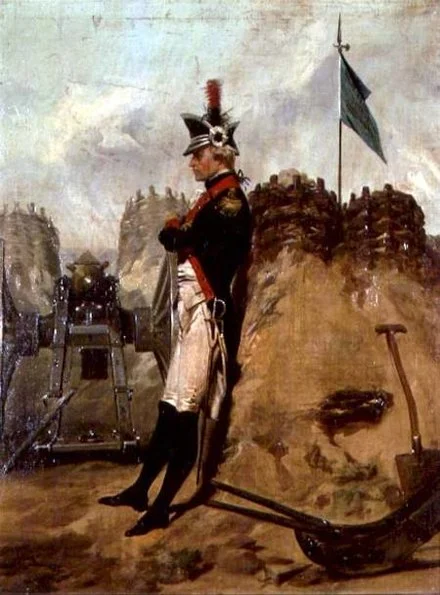Federalist #7 - Alexander Hamilton - Federalist Fridays
Federalist Paper #7 continues Alexander Hamilton’s discussion on disputes between States.
Hamilton discusses how territorial and economic disputes could drive a wedge between neighboring States if the Constitution is not ratified.
Federalist #7
Alexander Hamilton
November 15, 1787
The Same Subject Continued:
Concerning Dangers from Dissensions Between the States
On November 15, 1787, Alexander Hamilton published a Federalist Paper for the second consecutive day. In Federalist #7 Hamilton continues his discussion on rivalries between the States.
This Paper is longer (but better argued) that the previous day’s entry. Its focus is on territorial disputes as well as the dangers of separate, competing economies.
Territorial Disputes
Hamilton opens with an assessment which introduces the Paper well:
“Territorial disputes have at all times been found one of the most fertile sources of hostility among nations.”
He warns that separate States so closely packed together will inevitably go to war over borders.
Despite claims being settled amicably during and just after the American Revolutionary War, as States develop independent identities hostilities will surely break out.
The West
Alexander’s first example is the West.
He points out that much of the West is under the control of the Confederate Government and if the Constitution is not ratified then many of the States will make claims to have their ceded lands returned.
From an Anti-Federalists angle, this argument seems to overlook that (while he was at the Constitutional Convention) the Confederation Congress passed the Northwest Ordinance of 1787. This Act ceded all lands to the Confederated Government and eliminate all claims from existing States.
Granted, wars might break out when these properties were organized into new States (but that would end up happening anyway under the Constitution).
Existing Claims
Hamilton then begins to discuss disputed land claims within current States.
He points to the Wyoming territory (the modern county in Pennsylvania, not the western State) and the dispute between Pennsylvania and Connecticut. Connecticut’s original charter, like many other States, included all land stretching to the Pacific Ocean. Because of this Connecticut claimed what we now know as northeastern Pennsylvania.
Eventually, this dispute was settled by an independent arbitrator. The State of Connecticut was compensated for the land it lost and everything continued on as normal.
Hamilton argues that this type of situation might lead to lingering animosity between neighbors. An Anti-Federalist might respond that he conveniently ignores that this matter had been peaceably settled under the Articles of Confederation.
There are several instances like this which Hamilton does not discuss, such as the Mount Vernon Conference which, though it was an important step leading toward the Constitution itself, succeeded in resolving shipping routes between Maryland and Virginia on the Potomac.
Competing Economies
After briefly discussing territorial issues in Vermont which almost led to hostilities between New York and New Hampshire, Hamilton moves on to economics.
In his estimation, if the States remained independent nations, their competing economies would end up driving them to fight with each other, writing:
“The competitions of commerce would be another fruitful source of contention. The States less favorably circumstanced would be desirous of escaping from the disadvantages of local situation, and of sharing in the advantages of their more fortunate neighbors. Each State, or separate confederacy, would pursue a system of commercial policy peculiar to itself. This would occasion distinctions, preferences, and exclusions, which would beget discontent.”
As an example, Hamilton discusses New York.
It would be necessary, he asserts, for New York to lay duties on imports. If its neighbors were separate nations, then shipping anything out from New York City means they would, in essence, be paying taxes to New York.
The Debt
Hamilton’s last, and most compelling, argument in Paper #7 is that regarding the debt amassed during the Revolutionary War.
This debt, loaned to the Continental Congress on behalf of the whole Union, would need to be repaid (or at least stabilized to give the nation better credit).
Unfortunately, based mostly on his experience as a delegate to the Confederation Congress, Hamilton saw no reasonable means of gaining hold of this situation without ratification of the Constitution.
Any rule made for the States to pay off the debt would inevitably leave someone unhappy with the process by which funds were collected.
A State which believed it was getting the short end of the stick would surely ask for a redress of its grievances. No other State, however, if acting in self-interest, would lesson its neighbor’s load because that would make their burden harder to bare.
This, again, would build animosity between friends and could only lead to disunion and, eventually, war.
Assessment
All in all, this is a significantly better Paper than what Hamilton produced just the day before.
Its arguments are clear and concise and Alexander stays focused as opposed to jumping around and throwing in quick, seemingly irrelevant, bits of information.
Additionally, he does not seem to be as short and quippy as the previous installment. Instead, he is matter-of-fact with his positions and it makes for a more convincing opinion.
Hamilton leaves much less room for an Anti-Federalist to disagree with him while covering all his bases for any impending debate.
If you like what we are trying to do with this website and would like to support us, perhaps you’d like to purchase the same copy of the Federalist Papers as I own from the Amazon affiliate link below. It doesn’t change the amount you pay, Amazon just gives me a very small commission. Any profit will go to offset the cost of web-hosting. Thank you!
Either way, you should probably sign up for our email list so you never miss an article.






